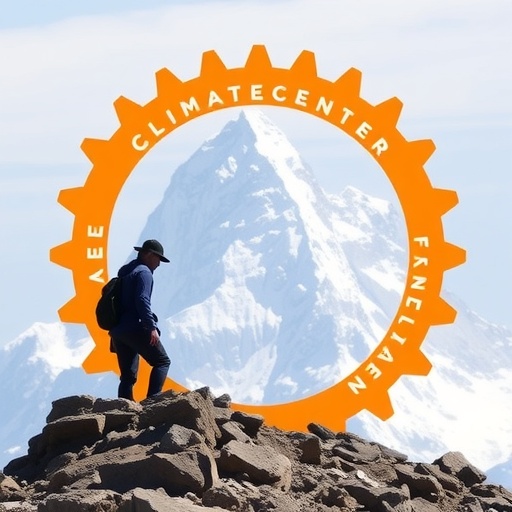The Wilkes Center for Climate Science & Policy at the University of Utah has announced Build up Nepal as the recipient of the prestigious $250,000 Wilkes Climate Launch Prize for 2025. This recognition highlights Build up Nepal’s groundbreaking efforts to revolutionize brick manufacturing in Nepal by replacing traditional coal-fired bricks with an environmentally sustainable and socially responsible alternative. The award ceremony is scheduled for Wednesday, September 24, 2025, with a reception beginning at 7:00 p.m. US Eastern Time, followed by the official announcement at 7:30 p.m.
In Nepal, where natural disasters frequently devastate communities, safe and affordable housing remains an elusive goal for many families living in poverty. Build up Nepal addresses this critical issue by producing Compressed Stabilised Earth Bricks (CSEBs) that do not require firing in coal-powered kilns. Instead, these bricks are mechanically compressed using a mixture of locally sourced soil, minimal cement for stabilization, and other additives. This method significantly reduces CO2 emissions compared to traditional brick manufacturing, aligning construction with ecological priorities.
Coal-fired brick production in Nepal contributes alarmingly to environmental degradation, accounting for approximately 37% of the country’s combustion-related carbon dioxide emissions. Beyond climate concerns, this industry is also linked to severe air pollution and hazardous occupational environments. Build up Nepal’s approach mitigates these concerns by eliminating the need for coal in the brick-making process. This not only diminishes carbon outputs but fosters improved health and working conditions for laborers involved in housing construction.
The technical advantage of CSEBs lies in their method of densification. Utilizing a hydraulic press, the earth bricks gain structural integrity and durability without subjected to the high-temperature kiln firing process that demands massive energy input. This energy-efficient process preserves the embedded carbon in the soil and avoids emissions associated with coal combustion. Furthermore, the bricks’ interlocking design expedites construction times and enhances seismic resilience — an essential benefit in earthquake-prone regions such as Nepal.
Build up Nepal’s enterprise model extends beyond environmentally conscious production; it also focuses on socio-economic upliftment. The enterprise trains local entrepreneurs to produce eco-friendly bricks, empowering them to build resilient, low-cost housing in vulnerable communities while creating sustainable employment opportunities. This localized production system fosters economic growth by decentralizing brick manufacturing, reducing transportation emissions, and nurturing community-based entrepreneurship.
Björn Söderberg, co-founder of Build up Nepal, emphasized the significance of receiving the Wilkes Climate Launch Prize. He highlighted how the funds would catalyze expansion efforts nationwide, allowing for greater adoption of these eco-friendly bricks. The prize underscores the urgent demand for scalable climate solutions that simultaneously address environmental imperatives and social equity. By fostering resilient housing infrastructure, Build up Nepal combats the twin crises of climate change and socio-economic vulnerability.
The Wilkes Climate Launch Prize celebrates transformative climate innovations poised to make rapid and impactful change. In 2025, the prize attracted over 1,100 submissions worldwide — more than fivefold increase from 2024 — illustrating a surge in global entrepreneurial activity aimed at climate mitigation. Independent expert judges rigorously assessed finalists on criteria including scalability, feasibility, and potential for positive externalities benefiting ecosystems, economies, and communities.
Joining Build up Nepal as finalists were Roca Water, a California-based company leveraging electrochemical processes to recover precious materials from wastewater, and De Novo Foodlabs of North Carolina, which employs precision fermentation for sustainable production of rare nutrients. These diverse solutions represent a cross-section of technological advancements tackling environmental sustainability from waste recovery to food innovation, demonstrating how multidisciplinary approaches are essential to comprehensive climate strategies.
The Wilkes Center’s commitment to accelerating actionable climate technology is exemplified through this competition. The prize incentivizes rapid innovation and deployment to mitigate the consequences of climate change before the situation becomes irreversible. Moreover, it affirms the critical role universities play in supporting applied research and fostering collaborations between academic institutions, industry innovators, and policy makers to realize climate-resilient futures.
The eco-brick initiative holds vast potential for replication beyond Nepal. Regions worldwide that depend on traditional brick manufacturing face similar environmental and health challenges. By adapting Build up Nepal’s CSEB approach, developing nations can reduce their carbon footprints while alleviating housing shortages. The intrinsic adaptability of compressed earth bricks combined with minimal cement content aligns well with global green building standards, offering a replicable blueprint for sustainable construction.
At the core of Build up Nepal’s success is a profound integration of technological innovation with community-centric development. The combination of ecological, economic, and social benefits creates a holistic climate solution that stands to contribute meaningfully to Nepal’s sustainable transformation. With the financial and strategic support from the Wilkes prize, the venture is positioned to scale exponentially, enabling tens of thousands more families to inhabit safe, climate-resilient homes constructed from sustainable materials.
The 2025 award event will be held at the L. S. Skaggs Applied Science Building in Salt Lake City, Utah, with options for virtual attendance available. Media engagement and interviews with both Björn Söderberg and Fielding Norton, managing director of the Wilkes Climate Center, are scheduled to provide deeper insights into the technological and social impacts of these pioneering efforts.
This recognition stands as a clarion call to the global community, inviting stakeholders to rethink construction paradigms and embrace eco-efficient alternatives that not only reduce emissions but directly enhance human wellbeing. The Wilkes Climate Launch Prize thus catalyzes a broader movement towards innovative climate resilience strategies, turning pressing challenges into scalable opportunities.
—
Subject of Research: Sustainable Construction Materials and Technologies for Climate Change Mitigation
Article Title: Build up Nepal Wins the 2025 Wilkes Climate Launch Prize for Revolutionary Eco-Friendly Brick Innovation
News Publication Date: September 24, 2025
Web References:
– https://www.buildupnepal.com/
– https://wilkescenter.utah.edu/prize/2025-climate-launch-prize/
– https://wilkescenter.utah.edu/summit/
– https://www.rocawater.com/
– https://denovofoodlabs.com/
Image Credits: Jonas Gratzer/Build Up Nepal
Keywords: Climate change mitigation, Construction engineering, Cement alternatives, Construction techniques, Building construction, Architectural design, Economic growth, Economic development, Entrepreneurship




